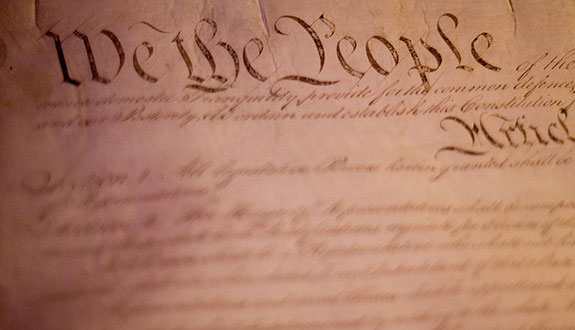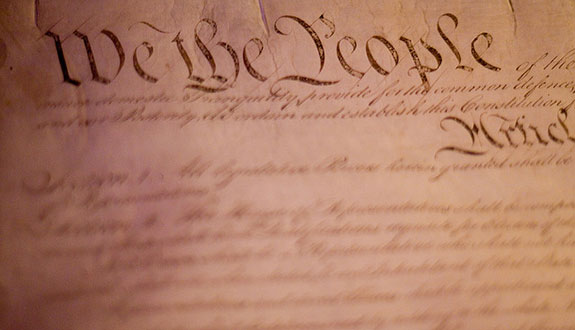Evenwel v. Abbott: One Person, One Vote
- by
- Apr 07, 2016
- News, Supreme Court Rulings
- Reviewed by: Matt Riley


On Monday, the Supreme Court handed down a voting rights decision that was surprising for its unanimity from a Court that has been bitterly divided on voting rights recently. At issue in Evenwel v. Abbott was whether states were constitutionally required to ignore those not eligible to vote when apportioning state legislative districts. Federal Congressional districts were not at issue, and that fact, as we’ll discuss in a second, was largely fatal to the plaintiffs’ claim.
The case was brought by Texas voters Sue Evenwel and Edward Pfenninger, who argued that counting those ineligible to vote diluted their political power in violation of the Fourteenth Amendment to the US Constitution, which provides that any person in a state’s jurisdiction must receive “equal protection of the laws.” The core of this argument is the idea that a voter who lives in an area with lots of people who are ineligible to vote — minors, non-citizens, felons, etc. — has more voting power than one who lives in an area with less ineligible voters. Two districts might, for example, have 300,000 people in them, but if one has 200,000 eligible voters and the other has only 100,000, it’s not hard to see that a vote in the latter district counts for about twice what a vote does in the former.
Unfair? Maybe.
A violation of the US Constitution? Not just no, but hell no.
As Justice Ruth Bader Ginsburg noted, in drawing US Congressional districts, the Constitution is crystal clear that non-voters are to be counted, requiring counting “the whole number of free persons.” Digging up that nasty old American original sin of slavery, she noted that, at the founding, slaves — who quite obviously were not eligible voters — were counted, albeit as a mere 3/5 of a person. (Excuse me while I shower off the national shame. Okay, I’m back!) Although the 14th Amendment was enacted after that provision, there’s no rational argument that the framers of the 14th Amendment sought to invalidate that portion of the Constitution implicitly. It’s a pretty strained reading of the 14th Amendment that What is commanded by the Constitution at the federal level is a violation of a citizen’s basic rights at the state level.
Because of this straightforward analysis, all eight justices voted against Evenwel and Pfenninger. Now, although the Court ruled that the Constitution doesn’t require ignoring those ineligible to vote, it didn’t reach the issue of whether a state can do so if it chooses. That’s a case for another day.
However, we may be headed that way. Ignoring non-voters would tend to redraw districts in a way that’s favorable to Republicans and unfavorable to Democrats. Democratic districts tend to be urban, have more children, and have more immigrants who aren’t eligible to vote. Republican districts are the opposite. Watch for a state to try this in the near future.
As a personal aside, it’s my hope that the Court would find such a scheme unconstitutional. The 14th Amendment says that persons in a state’s jurisdiction — not just citizens or voters but anyone in the jurisdiction — is entitled to equal protection of the law. Making it clear that the legislators of a state simply do not represent whole classes of people would be shameful.
What do you think? Chime in below.
Search the Blog

Free LSAT Practice Account
Sign up for a free Blueprint LSAT account and get access to a free trial of the Self-Paced Course and a free practice LSAT with a detailed score report, mind-blowing analytics, and explanatory videos.
Learn More
Popular Posts
-
logic games Game Over: LSAC Says Farewell to Logic Games
-
General LSAT Advice How to Get a 180 on the LSAT
-
Entertainment Revisiting Elle's LSAT Journey from Legally Blonde








